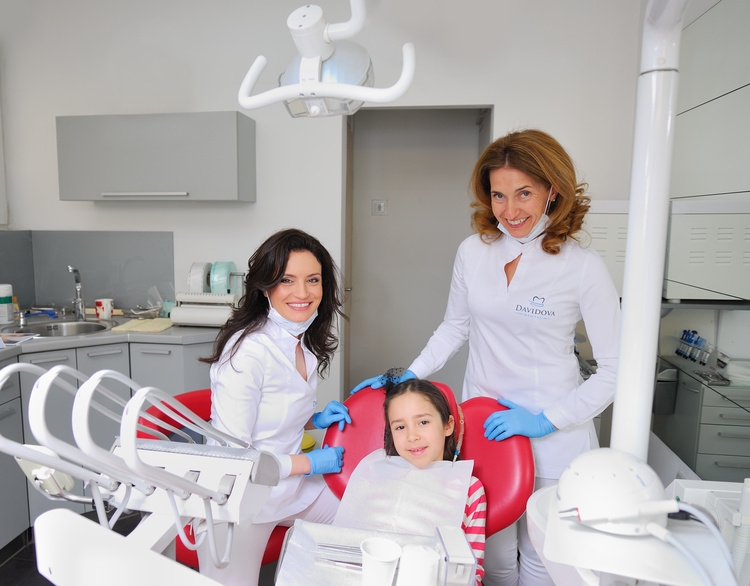The most frequently asked questions about children's teeth

Is it true that during pregnancy the baby "takes" calcium from my teeth?
No. It is a myth that pregnancy leads to loss of calcium and 'weakens' teeth. Calcium which is necessary for the formation of the baby's teeth comes from the balanced diet of the pregnant and never from her teeth. It is therefore very important to follow the advice of the supervising obstetrician for calcium intake through diet and / or supplements
When is the formation of the primary teeth?
The formation of primary teeth starts from 7th embryonic week and continues after birth. Therefore nutrition of the pregnant woman and the small child is so important. Any health problem of the mother or baby during this period can affect the structure of the primary teeth.
When primary teeth appear?
Primary teeth begin to erupt around the age of six months, and when the child is aged 24 to 30 months, it must have 20 teeth - 10 in the upper jaw and 10 in the lower one.
Teeth in the upper and lower jaw erupt at different times and there may be some variation in the sequence of the eruption.
Are the primary teeth important for my child?
Although primary teeth eventually fall, they are important for many reasons.
- Through them children chew food and speak clearly.
- They retain place for permanent teeth and if removed prematurely, the permanent teeth can grow crooked.
- They are important for normal development of the jaw muscles.
Is breastfeeding important for the development of teeth and jaws?
Yes, this is very important because:
- nursing is essential for proper growth and development of the jaws and reduces the risk of orthodontic deformations
- studies show that breastfed babies suffer less
- human milk contains antibodies and reduces the risk of infections
- breast milk in its composition can not be replaced by any artificial mixtureswascontact with the mother during breastfeeding
- baby offers greater security and emotional connection with mother
You need to feed your baby with a bottle. Which is the best way for artificial feeding?
- Use bottles with an appropriate openings so that the baby can carry out the necessary movements for sucking. Fast food deprives the child of the natural development exercises his jaws.
- Try to feed your baby while holding the bottle in a vertical (rather than horizontal) direction. So the child will make a greater effort to suck and promote the healthy growth of the jaws.
- Never put sugar, honey or sweeteners in the bottle of baby during sleep.
- Never give your child a pacifier with sugar or honey in the mouth.
- Avoid acidic, sugary or carbonated foods and drinks, because they can damage tooth enamel
- You should stop giving a bottle of milk and fluid when the baby is 12-14 months. From this age on, try to teach your child to drink all liquids from a cup.
Is it bad that my child sucks his finger?
The habit of finger sucking is a natural reflex in many babies in the first months after birth (even in the womb!). This habit, however, must be removed as soon as possible, because it can lead to serious distortions in the bite.
